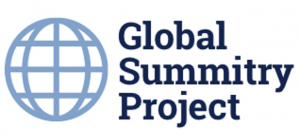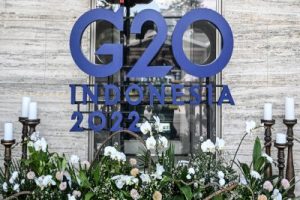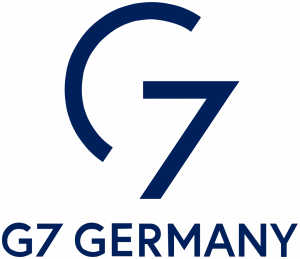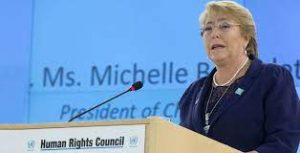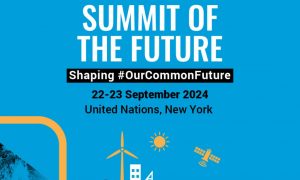
So this week’s Post may be ‘a bit lighter’ than usual. But I have an excuse: there is a celebration afoot in the family this weekend – my younger daughter is getting married – much activity is planned. Still here is this week’s thinking on global order matters on ‘Alan’s Newsletter’.
Now, where were we? Ah yes, focusing on diplomacy and the difficulties of multilateralism, especially among the Formals. Now Richard Gowan recently wrote a piece examining the UN, especially in the light of the upcoming September UN Summit of the Future. Richard oversees the International Crisis Group’s advocacy work at the United Nations, liaising with diplomats and UN officials in New York. Richard also is a Research Associate and Associate Director for Policy at the Center on International Cooperation at NYU.
As Richard describes it in his article, “Redefining the UN’s Prime Purpose” there is a growing sentiment to diminish the UN’s role in peace and security matters. This seems to go all the way to the top of the UN chain. As Richard writes:
Even some of the organization’s leaders appear to think that the UN may be wise to take a lower profile on security concerns and focus its energies elsewhere. … In 2021, he [Antonio Guterres] published a report on the future of multilateralism entitled ‘Our Common Agenda’… In 2023, Guterres released a fuller New Agenda for Peace. This contained a frank assessment of the poor state of international relations, and urged states to reinvest in diplomacy. It included interesting passages on the security challenges posed by AI, new biotechnologies, and other scientific advances. Yet the document struck a humble note, emphasizing that the UN’s ability to address many conflicts is limited and that international interventions often backfire. Instead, one of its themes is that states should invest more in their domestic conflict prevention efforts.
And the bottom line, according to Richard, is reducing the UN role:
In line with the Common Agenda, the Secretary General has portrayed the summit as an opportunity for presidents and prime ministers to launch new ideas about global governance. Diplomatic discussions about the summit – and a Pact for the Future that is meant to come out of it – have further highlighted the difficulties of talking about security at the UN.
This stepping away from conflict abatement efforts seems to extend through a significant number of UN Members and somewhat surprisingly, or maybe not, depending on your point of view, it appears to be expressed by Members of the Global South. Richard has in fact picked up on this thread of thinking from the Global South:
Many UN members from the so-called Global South have made it clear that the summit and pact should focus on the economic problems that they face today. Scores of developing countries are now carrying unsupportable debt burdens, and want the summit to help them unlock affordable financing.
Many of these UN members from the Global South – what used to be referred to in the past as the Third World, or the developing world, or even as the NAM, the ‘Nonaligned Movement’ have made it clear that the upcoming Summit of the Future and the Pact for the Future should focus on their economic problems, especially in the light of significant and growing debt but also in financing the green transition that they all face today.
The dilemma of course is, if the UN backs away from conflict suppression, then who, or what, can the global order rely on. It is evident that there is a hard limit on what the UN can do in the face of great power conflict for the moment but there are many conflicts where the UN is, and has played a role in limiting, and in some instances ending, conflict. The problem has been that the efforts are slow and too often barely effective and these peace efforts can extend for far too many years. So new approaches are called for and likely include stronger immediate pressure and serious diplomatic actions backed possibly by strong sanctions and in some limited cases early intervention. As Richard concludes:
Even if the UN’s narrowly defined security role is shrinking, multilateral cooperation is still essential to addressing the security of states and individuals in a wider sense. So it is possible that the UN will see its traditional mediation and peacekeeping roles shrink, while still contributing to making the world a safer place through other strands of work.
Reliance on more active diplomacy needs to be considered especially in a world where there is a growing threat of conflict, violent conflicts such as Ukraine and the Gaza wars. But there also needs to be a shift in thinking how, and when, to turn to force is warranted. Dan Drezner from Drezner’s World, and Tufts, and other things, points to the weakness of diplomatic thinking and action. In the case he discusses this is on the part of one of the leading powers, the United States. As Dan in this Foreign Affairs article titled, “How Everything Became National Security: And National Security Became Everything” points to US thinking and action in foreign policy and how it has become dominated for far too long by an overweening national security mindset:
Consider the history of the National Security Strategy, the report on current threats that the president is supposed to deliver to Congress annually, although in practice it is usually released less often. A review of post-1990 reports reveals a steady expansion of qualifying concerns: energy security, nuclear proliferation, drug trafficking, and terrorism, among many others.
In the 70 years since, the definition of national security has been stretched almost beyond recognition. New technologies have multiplied the vectors through which external forces can threaten the United States. Furthermore, because security issues command greater staffs and budgets, policy entrepreneurs have strong incentives to frame their interests as matters of national security. The forces that push issues into the national security queue are far more powerful than the forces that lead policymakers to exclude them. Nevertheless,even with this expansion, the United States has been blindsided by events: 9/11, the COVID-19 pandemic, the October 7 attacks. Simply having a longer list of threats hasn’t really helped prepare for the unexpected.
The need for strategic recalculation by the US and among the major powers is all too apparent today. What that recalculation is, and how to implement that, is a discussion for another day.
This Post was first posted at my Substack Alan’s Newsletter https://open.substack.com/pub/globalsummitryproject/p/the-troubles-with-multilateralism?r=bj&utm_campaign=post&utm_medium=web&showWelcomeOnShare=true
Comments are welcome as are the free subscriptions
Image Credit: Geneva Environment Network

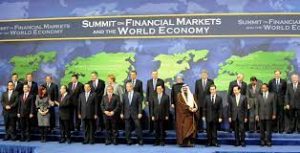 It is really not possible to begin this Substack Post without a quick glance at the first US Presidential debate of 2024. It was ugly. It was a tough night, especially for President Biden but I will let the political pundits to have their say.
It is really not possible to begin this Substack Post without a quick glance at the first US Presidential debate of 2024. It was ugly. It was a tough night, especially for President Biden but I will let the political pundits to have their say.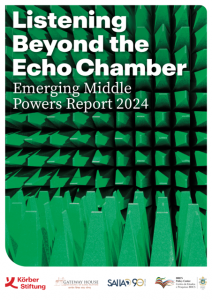
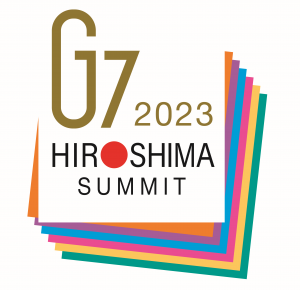 Yup, a little late in the weekend it is. But then for some Monday is a holiday. Mea culpa, but I was deep into completing a draft chapter for a yet to appear volume – which, in fact is scheduled to be released by 2025. The publication year, by the way, is important. My chapter will be part of a planned edited volume by Edward Elgar Publishing. There will be many chapters, so I am told, that will review and analyze the G7. It will do so on the 50th anniversary of the initiation of the G7 Leaders Summit. Yup, Rambouillet, the acknowledged first G7 Leaders Summit – it was actually, the G6 – France, Germany, Italy, Japan, UK, US at that moment in time – met in 1975. All the chapters, I suspect, will cover aspects of this ‘First Informal’, the G7, and, I suspect, the other Informals as well – that is the G20 and the BRICS.
Yup, a little late in the weekend it is. But then for some Monday is a holiday. Mea culpa, but I was deep into completing a draft chapter for a yet to appear volume – which, in fact is scheduled to be released by 2025. The publication year, by the way, is important. My chapter will be part of a planned edited volume by Edward Elgar Publishing. There will be many chapters, so I am told, that will review and analyze the G7. It will do so on the 50th anniversary of the initiation of the G7 Leaders Summit. Yup, Rambouillet, the acknowledged first G7 Leaders Summit – it was actually, the G6 – France, Germany, Italy, Japan, UK, US at that moment in time – met in 1975. All the chapters, I suspect, will cover aspects of this ‘First Informal’, the G7, and, I suspect, the other Informals as well – that is the G20 and the BRICS. We are definitely in the midst of Global Summitry gatherings. With the BRICS Summit just recently ended, we are deep into the G20 weekend gathering in New Delhi. So much commentary has accompanied these summitry gatherings. But I caution casual observers and readers: there are way too many assessments and conclusions drawn by all those folks that unfortunately barely pay attention to Global Summitry through much of the year. You can see this in the various ‘hair on fire’ commentaries in the assessments and consequences of the actions of key players in both the BRICS and now especially with the G20. Too many declarations of the G20 demise; firm conclusions that China and Russia would block any consensus statement that sought to condemn Russia’s aggression against Ukraine; the fragmentation of global summitry with the rise of the BRICS plus and the demise of the G20 with leaders from Russia and China choosing to absent themselves from summit.
We are definitely in the midst of Global Summitry gatherings. With the BRICS Summit just recently ended, we are deep into the G20 weekend gathering in New Delhi. So much commentary has accompanied these summitry gatherings. But I caution casual observers and readers: there are way too many assessments and conclusions drawn by all those folks that unfortunately barely pay attention to Global Summitry through much of the year. You can see this in the various ‘hair on fire’ commentaries in the assessments and consequences of the actions of key players in both the BRICS and now especially with the G20. Too many declarations of the G20 demise; firm conclusions that China and Russia would block any consensus statement that sought to condemn Russia’s aggression against Ukraine; the fragmentation of global summitry with the rise of the BRICS plus and the demise of the G20 with leaders from Russia and China choosing to absent themselves from summit. So, the International Studies Association (ISA) just concluded in Montreal
So, the International Studies Association (ISA) just concluded in Montreal